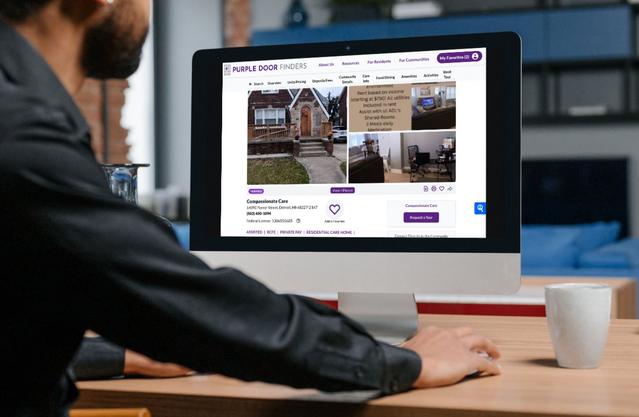Assisted Living•Senior Living
Building Trust: Establishing Long-Term Relationships for Assisted Living Communities
Assisted Living•Senior Living
Building Trust: Establishing Long-Term Relationships for Assisted Living Communities
Establishing Trust
This is essential for assisted living communities. Families entrust you with the care and well-being of their loved ones, and that begins with the first impression made on a family. Every interaction throughout the decision-making process, from tours to move-ins and ongoing living needs, is also assessed. This is true for potential residents as well as current residents. Residents with a positive experience with your community will translate into additional referrals and a good reputation for your community.
From the onset, families seeking care for their elderly relatives want assurance that their loved ones will be treated well with compassion, respect, and dignity. They also want confidence that the community will meet their loved one's needs and provide a safe and supportive environment.
Building trust is a two-way street. Assisted living communities must demonstrate transparency, reliability, and integrity in all their interactions, and families need to understand pricing, availability, care options, and more. By building this relationship, a community can instill confidence and peace of mind and foster a positive and enduring experience for all involved.
It Starts with Communication
Effective communication is key to building trust. During the search process, communities should communicate professionally, compassionately, and promptly to potential residents and those helping them with their search; it reflects how the community will address issues and communication once the senior becomes a resident. This is the first place where trust is planted. Once a resident is within your community, communities should maintain transparent communication channels with residents and their families, informing them about care plans, activities, and any changes in policies or procedures. Regular updates and opportunities for feedback demonstrate a commitment to transparency and openness.
Pay attention to how they market their community. Are they transparent with their pricing? Do they have an honest online presence? Here is an article talking about marketing in the senior living industry - A New Marketing Strategy in Assisted Living.
Personalized Approach:
Every resident has unique needs, preferences, and interests. These are usually brought up to the communities with the first interaction with a resident or family. The seniors and those helping them with their search are usually searching for assisted living due to a sudden health impairment or just because it is time to have a safer, more supportive living environment. Assisted living communities can build trust by taking a personalized approach to consult with the seniors and their families, taking into account their unique care needs and living preferences, and providing the best possible fit. Communities can strengthen trust and foster a sense of belonging by demonstrating a genuine commitment to listening, understanding, and accommodating residents' preferences.
Accountability and Transparency:
Assisted living communities should be transparent about their communities, from pricing, care costs, care capabilities, availabilities, etc, in the very beginning. Many families are looking for senior living for the first time and are new to the process, so being intentionally transparent and explaining all of the various aspects of their communities openly and honestly will build more trust with the families. Accountability and transparency are also incredibly important with the current residents. This includes admitting mistakes, addressing concerns promptly, and taking proactive steps to resolve issues. Transparency in decision-making processes and financial matters also helps build trust by demonstrating integrity and accountability.
Building a Sense of Community:
Assisted living communities can build trust by fostering a sense of community among residents, families, and staff. Organizing social activities, events, and support groups creates opportunities for interaction and connection, fostering a supportive and inclusive environment where trust can thrive.
Consistent Quality of Care:
Providing consistent, high-quality care is paramount in building trust with residents and their families. Assisted living communities should prioritize staff training and development to ensure that caregivers are equipped with the skills and knowledge to deliver compassionate and personalized care. Consistency in care fosters confidence and reassurance among residents and their families.
Long-Term Relationship Building:
Building trust is an ongoing process that requires time, effort, and commitment. Assisted living communities should focus on nurturing long-term relationships with residents and their families, demonstrating a genuine interest in their well-being, and actively seeking feedback to improve services and support continuously.
Conclusion
Building trust is essential for establishing long-term relationships with assisted living communities. By prioritizing open communication, consistent quality of care, personalized approaches, accountability, community building, and long-term relationship building, communities can foster trust and confidence among potential residents and their families. In doing so, they can create a supportive and welcoming environment where residents feel valued, respected, and cared for, and their families know their loved ones are safe and secure.
_________________________
This article is intended solely for informational purposes and should not be construed as medical, legal, or financial advice. It does not establish a professional relationship between Purple Door Finders and the user. For any personal matters or decision-making, it is strongly recommended to seek guidance from a qualified healthcare provider, attorney, or financial advisor. While links to third-party websites are provided for your convenience, please be aware that Purple Door Finders neither endorses nor assumes responsibility for the content of these external sites.



_5bdff112-bd8c-46dd-b3ec-236dae833194.sm.jpg)